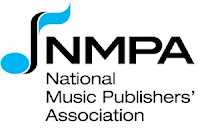Here's a guest post from
Anna Durish, marketing and communications director for
Rightclearing AG, a company that specializes in music rights clearances. Music licensing is an increasingly more lucrative source of income for many musicians and songwriters, but they usually don't know as much about it as they should. On the other hand, artists, bands, film makers and television producers who want to use someone else's song in their project usually don't know the first thing about how to go about it legally. Hopefully this post will explain all.
"What do the Beastie Boys, Vanilla Ice and Johnny Cash have in common? They were all accused of copyright infringement. What this means can be seen in the case of Vanilla Ice quite clearly. For his song “Ice Ice Baby” he adopted the melody of Queen's and David Bowie's “Under Pressure” almost identically, without having the legal usage rights to it. (Here’s the comparison of the songs). Since the infringement was quite obvious, Vanilla Ice had to pay a significant amount of money to the creators.
Clearly this isn’t the way that music licensing normally works. That’s why this blog post wants to help you prevent such a disaster from happening by teaching you the basics about music licensing. Because it really isn’t rocket science!
When do I have to license a song?
Let’s start with a little example: Imagine you’re making a video about your holidays and the only thing missing is a piece of music to complete it. Quickly you add your favorite track and you’re done. So far everything sounds quite easy. But when does music licensing come into play? Depends on how you want to use the video. There are two different types of use:
- Private Use: If you only want to show the video to your closest friends and don’t intend to publish it on the Internet or another medium, let alone distribute it commercially, then you don’t need the permission of the creator. You don’t have to license the song.
- Public Use: If you want to show the video to people outside your private sphere by making it available for example on YouTube or if you want to sell it, you need the concession of the creator; you have to license the song.
Which rights are affected?
To publicly use someone else’s work you have to acquire certain rights of use. There are two different kinds of rights involved: The master and the publishing rights.
- Master rights: The owner of the Master Rights owns the actual recording of the song's sound. These rights usually belong to the party that financed the recording. Often this is the record label if they don’t lie with the artist.
- Publishing rights: The owner of a song's Publishing Rights owns the rights to the composition; usually this is the author of a piece of music. The author is also the copyright owner unless there is a written agreement by which the author assigns the copyright to another person or entity, such as a publisher.
If you publish your video without acquiring the usage rights, it can, to put it mildly, get quite unpleasant for you. YouTube for example can block your uploaded video or delete your account. If you are really unlucky the rights holder can take legal action against you and demand compensation. The rules apply to all sorts of videos and their public use not just YouTube videos.
How do I license a song?
Enough theory for now! Let’s get straight to the point and talk about how music licensing works in practice. Unfortunately this process is often very complicated and takes a lot of patience.
- Selecting the song: First of all you need a song. Most of the time you don’t have the perfect song at hand and need to scour the Internet or your personal library until you find a track that matches your video.
- Legal aspect: After having found a song you have to find out who holds the rights to it. They can lie with the artist, a label, a publishing house or a collecting society. Depending on the country, different publishing houses can hold the usage rights.
- Request: Now you have to ask the rights holders if you can license the track. You need the permission of both the holder of the master as well as the holder of the publishing rights, which are often different parties. If you’re very unlucky one of them rejects your request and you need to start your search from scratch.
- Pricing: Next you have to negotiate a price. There are many factors to consider, such as popularity of the song, distribution or type of project.
Normally songs of very famous artists like Jimi Hendrix, The Beatles, Muse, Queen etc. are very difficult to license or just unaffordable. But even for less famous artists the license can be too expensive. If this is the case you’ll have to start all over again with your search.
- Draw up a contract: Last but not least you need to draw up a contract with the rights holder, which implies that you either have some legal knowledge or are willing to pay a lawyer to work for you.
- Time factor: As you can see, this whole process costs you a lot of time, money and nerves. Depending on the track you want to license you might have to wait several weeks or even a year until you can license the song properly.
Is there an easier way to license music?
Don’t panic, there is! Before you completely lose your courage, there are several online music licensing services trying to simplify the whole process and solve the problems mentioned above, like audiosocket.com, soundtaxi.net and rightclearing.com. Every page has its advantages and they serve different needs. To get you an idea of what online music licensing is and why it makes the process of music licensing easier, here’s an example of how rightclearing.com works.
The site offers you a constantly growing sound pool of pre-cleared tracks. This means that it’s already determined who holds the rights to every song. To find a suitable song you can search via keywords or just drop a song in the rightclearing.com search bar and the system will find the most similar sounding pieces in the library. As soon as you have found a song the system will automatically calculate the price of the license. They also offer Creative Commons licenses, which, in some cases, can be obtained for free. After paying for the license an automated lawyer will draw up a legal contract. The licenses are valid worldwide and unlimited.
Thanks to online music licensing services like that you don’t have to wait for month or even years until you have your license. It often takes only a few clicks to legally add sound to your video.
Last but not least…
… this blog post has hopefully helped to clarify the topic of music licensing and answered some of your questions on how it works. Licensing music doesn’t have to be complicated and it definitely pays off in the long run. If you license your songs properly you are not only legally on the safe side, but you also ensure that the artist gets rewarded fairly for his hard work and creativity."
Thanks, Anna, for your insights!
----------------------------------
Follow me on Forbes for some insights on the new music business.
You should follow me on Twitter for daily news and updates on production and the music business.











